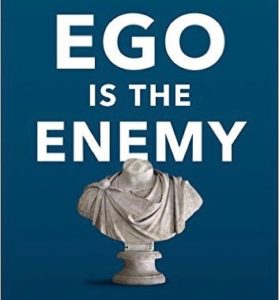Whether you’re a mediocre high school basketball player or Kanye West, no amount of hype or admiration ever seems to suffice. For whatever reason, people can’t fathom the talent or brilliance that subsists within your imagination. Some day they’ll all bow down to you. But until then you justify it by telling yourself (and others) that you’re being “slept on.” (Urban Dictionary defines slept on as: “Ignored or overlooked, not paid respect when an effort is made by a person or group of persons.”)
The slept-on culture is a byproduct of a tidal wave of self-published content that anybody with an Internet connection can make: SoundCloud mixtapes, Hudl highlights, Instagram fitness accounts, whatever. These people are never unskilled or lackluster. They’re just “slept on.” Below are six out of thousands of tweets that result from searching the term “sleeping on me” on Twitter:
“I’m glad everybody sleeping on me [100 emoji] They going wake up sooner or later” – Random high school football player
“People gonna stop sleeping on me one day” – Music producer
“Those sleeping on me. Stay sleep [praying hands emoji]” – Film maker
“Some y’all be sleeping on me [snoozing emoji]” – Recent college grad
“They stay sleeping on me but y’all about to get WOKE” – Makeup, fashion, and lifestyle vlogger
“Y’all sleeping on me but that’s just pushing me to go harder [100 emoji] Ima Remain humble” – Another random high school football player
These self-righteous claims, which are almost universally undeserved, are the symptoms of an inflated ego. The same voice that says “I’m slept on” is the same voice that says “I have it all figured out; I deserve the spotlight; I can do no wrong.”
Maybe you are the diamond in the rough. But even so, it’s doubtful that people purposefully shut you out. They just don’t have time to put their lives on hold to watch your highlight reel or listen to your mixtape. So instead of taking the time to bitch about how people are ignoring you, why not channel that energy into becoming so good that people can’t ignore you?
It’s incredibly easy to blame others for our lack of fame, recognition, or success. It’s tempting to hold them to the fire instead of holding ourselves to the fire and asking: What am I not doing to separate myself from the clutter?
With a few exceptions, I don’t care about anybody who reads this. I don’t write so I can have random people affirm me. I care more about myself and my personal progress than I care about retweets and how many newsletter subscribers I have. My potential, the best version of myself, is the standard I measure myself against. Not my level of public recognition.
 “Winning is not enough,” says Ryan Holiday in Ego is the Enemy. “People can get lucky and win. People can be assholes and win. Anyone can win. But not everyone is the best possible version of themselves.”
“Winning is not enough,” says Ryan Holiday in Ego is the Enemy. “People can get lucky and win. People can be assholes and win. Anyone can win. But not everyone is the best possible version of themselves.”
This raises an interesting question:
If you were to maintain the same level of talent, but suddenly racked up thousands of followers and got featured in The New York Times, would you be satisfied? For most of us, the answer is yes. That’s because we’re obsessed with attention and validation when we should be obsessed with progress and humility.
Whenever we’re seduced into thinking we’re “slept on,” we must remember to distance ourselves from the clamor of others’ opinions, to persevere with no regard for admiration.
“What the superior man seeks is in himself,” said Confucius. “What the small man seeks is in others.”
Dominic Vaiana studies writing and media strategy at Xavier University. You can get the PDF “11 Immutable Writing Lessons from Legendary Authors” along with his personal articles, essays, interviews, and book recommendations by joining his monthly newsletter.